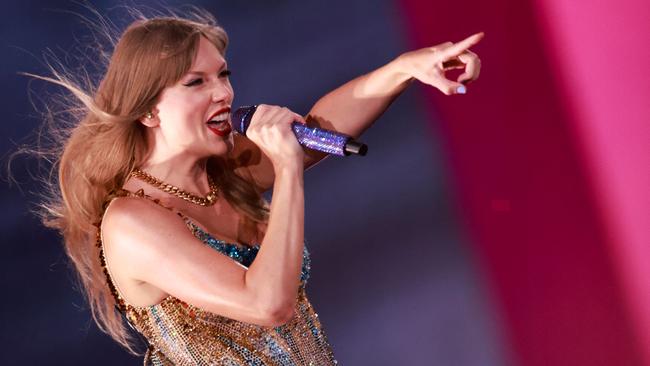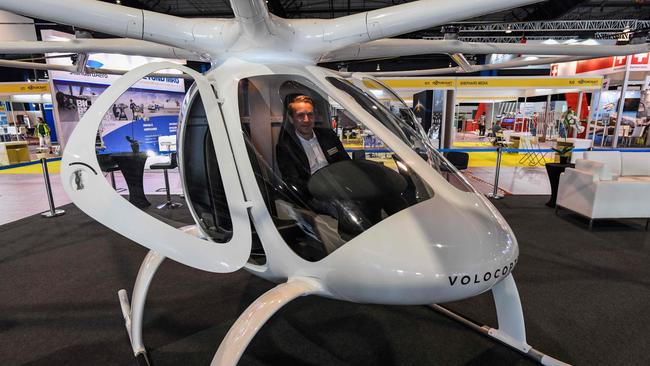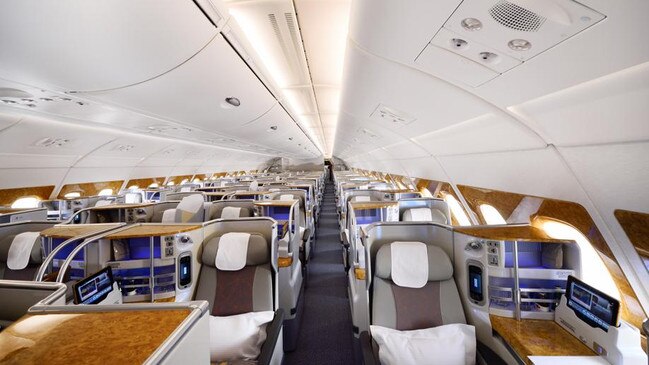Why electric taxis, AI and Taylor Swift are changing travel in 2024
Travel is set to undergo some major changes in 2024, led by the rise of electric air taxis and generative artificial intelligence.

With the reset of the travel industry almost complete post-Covid, a range of new trends is emerging, led by the rise of electric aircraft, artificial intelligence and demand for premium cabins.
In its annual travel trends report, tech company Amadeus examines what travellers can expect in the year ahead with a number of new-age developments.
Amadeus vice-president of global corporate marketing and communications, Daniel Batchelor, said there was much to look forward to.
“Generative artificial intelligence will continue to exert a growing influence across the sector in 2024 while electric taxis are finally poised for takeoff,” Mr Batchelor said.
“Doing what we love, be it seeing live music or exploring new destinations, will also drive bookings next year while airlines continue to reshape their offering to respond to changing tastes.”
Perhaps the most dramatic change for travellers will be the arrival of electric air taxis, offering the option of emissions-free trips to carry passengers over congested road networks.
German aircraft manufacturer Volocopter will provide a fleet of eVTOL or electric vertical takeoff and landing aircraft for the 2024 Paris Olympics, and launch services in Singapore’s major tourist precincts of Marina Bay and Sentosa.

Cross-border air taxis are also on the cards for Malaysia and Indonesia, while Toff Mobility is working towards a 2024 debut in South Korea.
Another significant change for travellers is the increasing use of generative artificial intelligence by online booking sites such as Expedia to help personalise itineraries.
Instead of talking to a human adviser, travellers can simply provide a brief to a chatbot, and get instant hotel and itinerary recommendations in return.
For those seeking more of a personal touch, social media influencers are now doing more than providing inspiration for travel, with guided tours and group trips on offer.
Newcastle-bred yogi Sjana Elise is among those getting in on the act with retreats to Greece, Peru and Bali with the help of e-commerce marketplaces such as Thatch and TrovaTrip.
The technology allows Instagram and TikTok influencers to share a booking link directly on their profile page and process payments.
Music tourism is also seeing a huge reconnaissance thanks to superstar artists Taylor Swift, Paul McCartney and Coldplay.
Amadeus has previously documented the massive surge in flight bookings when Taylor Swift concerts go on sale, ensuring host cities a two to three-day tourism boom.
Mr Batchelor said the phenomenon could be related to the “social isolation of the pandemic when bands and musical artists were grounded for months”.
“A boom in concerts and festivals has this year tapped into a desire for connection,” he said.
“The trend is expected to accelerate as we look towards 2024.”
Airlines are also getting in on the act, responding to tremendous demand for premium cabins in particular with a range of “unbundled” business fares.
Emirates was the first to launch the pared back fares with no lounge access and restricted seat selection followed by Qatar’s “business lite” fare.

It’s not only leisure travel that’s undergoing a post-pandemic overhaul but work trips as well with Corporate Traveller noting a shift away from one and two-day trips.
Rather than limit themselves to a packed schedule of meetings book-ended by early morning and evening flights, Corporate Traveller CEO Tom Walley said clients were seeking to add value to precious time away.
“The shift to longer business trips is influenced, in part, by changing work patterns,” Mr Walley said.
“Many executives in hybrid and flexible working arrangements can base themselves anywhere on their remote working days and remain productive. This flexibility is encouraging business travellers to take extended stays, which then gives them freedom outside of working hours to add on leisure activities in a new destination.”







To join the conversation, please log in. Don't have an account? Register
Join the conversation, you are commenting as Logout